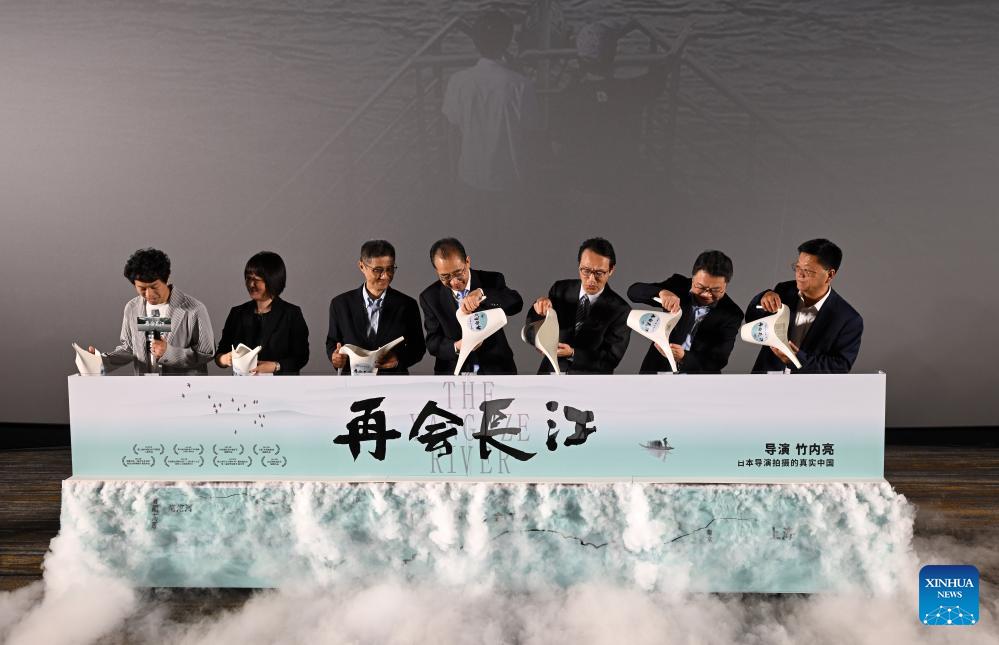
 0 Comment(s)
0 Comment(s) Print
Print E-mail Xinhua, June 6, 2024
E-mail Xinhua, June 6, 2024

Japanese director Ryo Takeuchi (1st L) and guests attend an event promoting the theatrical release of documentary film "The Yangtze River" in Beijing, capital of China, June 5, 2024. Japanese director Ryo Takeuchi shared his deep fascination with the Yangtze River at a media event on Wednesday, reflecting on the journey behind his documentary film on the river currently showing at Chinese cinemas. (Xinhua/Jin Liangkuai)
Japanese director Ryo Takeuchi shared his deep fascination with the Yangtze River at a media event on Wednesday, reflecting on the journey behind his documentary film on the river currently showing at Chinese cinemas.
For Takeuchi, his interest in the Yangtze River began in childhood. As a young boy, he was captivated by manga tales of ancient China's Three Kingdoms period (220-280 A.D.), especially the famous Battle of Red Cliffs along the mighty Yangtze.
"I was completely drawn to it," Takeuchi said at a Beijing event promoting the film's theatrical release, recalling his awe many years ago when he first laid eyes on the immense, spectacular Yangtze. "Coming from Japan where we don't have rivers that large, it was hard for me to imagine a river of such vast size."
Takeuchi's documentary film "The Yangtze River" hit Chinese mainland theaters on May 24.
Takeuchi, who is married to a Chinese woman and says he's deeply attached to the country's culture, previously made an NHK documentary series about the Yangtze over a decade ago. However, he regretted not capturing its headwaters then, so he retraced all 6,300 km in 2021 for what became this new film.
Beyond the stunning natural scenery, Takeuchi's new documentary captures the smiles and heartwarming stories of ordinary people, painting a vivid picture of local customs and everyday life along the river, while highlighting monumental changes in China over the past decade.
"The environment has improved, and people's lives have become much more convenient," he said. "Life has changed dramatically."
More importantly, Takeuchi observed shifts in people's mindsets, particularly among those living along the western stretches of the Yangtze. "There have been significant changes in social attitudes, such as views on marriage," he remarked.
Though not yet a blockbuster, the film has connected with critics and fans, scoring an impressive rating of 8.3 out of 10 on review platform Douban.
One cinema manager took to the microblogging platform Weibo to praise the film for deepening her appreciation of China's magnificent landscapes and awakening "a greater love for this land."
Takeuchi believes the documentary's foreign perspective on this iconic Chinese river is key to its appeal. "For many Chinese people, the proximity to their mother river makes it hard to appreciate her beauty," he said.
Takeuchi also emphasized the importance of authenticity in documentary filmmaking. "I don't impose my ideas on the audience. I simply present the reality, allowing viewers to interpret it for themselves," he said.
Curiously, he found the points in the film that provoked audience reactions like laughter and tears were almost identical in China and Japan, where it was released on April 12. "When you depict the real lives of ordinary people, many emotions resonate universally."
Go to Forum >>0 Comment(s)